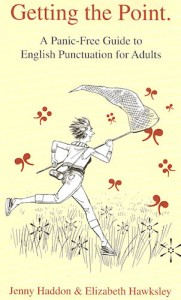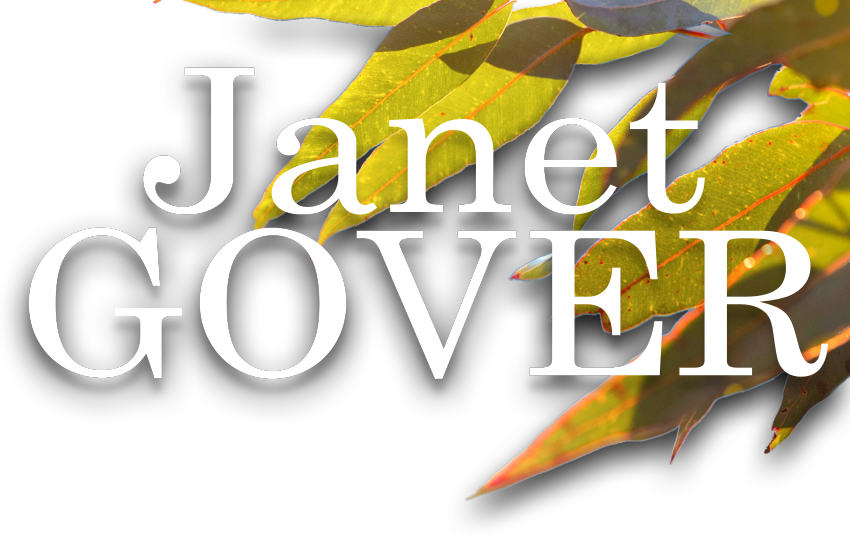
It is amazing what we think we know… but don’t.
Actually – I didn’t really think I was terrific at punctuation. But I thought I did OK. After all, I’ve written seven novels. I had to have some idea about punctuation. Right?
This week, I joined a group of about 30 fellow RNA members in London for a workshop on punctuation run by the wonderful Elizabeth Hawksley. As well as penning many historical novels, she is the co-author of one of my most used reference books – which sits on my desk next to my two books of baby names and an Alice Cooper teddy bear.
The group at the workshop included both published and unpublished writers, which just goes to show that no matter how long we have been at this – we never stop worrying about punctuation.
Elizabeth started with extracts from two published authors. We looked for and found many errors of punctuation in both – before being told they were extracts of work by authors who are revered in their respective genres – Ian McEwan and Georgette Heyer.
This suggests two things – accepted punctuation rules do change over time. And even the greats get it wrong sometimes.
In an afternoon punctuated (!!!) with amusing tales and much laughter, I learned a few new things and reinforced a few I already knew.
For me, the key points of the day – which are now firmly fixed in my mind, included: (note the correct use of the colon)
- If the action belongs to the speaker, it remains in the same paragraph e.g. ‘I know.’ Adam opened the box.
- If there are two speakers – use two paragraphs. The new speaker (and their actions) get a new paragraph.
- There is always a punctuation mark before the close of inverted commas or speech marks. What you call them seems to depend on where you were educated.
- Don’t close inverted commas until the person has finished speaking. If their dialogue covers two paragraphs, open the speech marks at the beginning of the second paragraph, but close them only when the dialogue is finished.
- The first letter of the first spoken word is always upper case, even if it follows a comma
- Don’t ever use : to punctuate dialogue – although it is fine within, if appropriate.
- And perhaps the most useful thing for me was… Imagine the speech as a separate sentence. Take out the ‘he said’ and so forth, and punctuate it as if it was on its own.
Of course, Elizabeth pointed out, publishers have their own house styles and there will be times you and your editor will disagree on punctuation. If it’s really awful – stand up for your principles. But sometimes you have to grit your teeth and give in gracefully.
And she did remind us that sometimes it’s better to re-write the section in a better way, so that punctuation disputes are avoided. (I do that all the time.)

Thanks for a really useful session, Elizabeth and I have one request to make. If you read this, please don’t check the punctuation – because I’m sure there will be something wrong.

Comments
12 responses to “So I thought I could punctuate…”
Thank you for your kind words, Janet.
I, too, enjoyed the workshop yesterday. It’s always a pleasure to teach such a lively and enthusiastic group.
And, don’t worry, your punctuation is impeccable!
Thank you – for both the workshop and the kind words.
Yes, I’m both published and performed, but three of the above have been puzzling me. Thanks Janet and Elizabeth. Anne Stenhouse
We never stop learning Anne, do we? Glad you found it useful. Janet
A very enjoyable afternoon and well recived by everyone. The London groups goes from strenght to strenght thanks to the support of so many people, like Elizabeth Hawksley, who give up their time to help us.
Agreed Jean – what a fabulous group it is – so much support from and for everyone. J X
Thank you Janet. I’m really annoyed I missed this (due to self inflicted hangover!) Your afternoon at the London Chapter with Elizabeth sounds really informative and I’m grateful for your highlights.
It is a shame you missed it Karen – it was a great afternoon. We hope to see you next time perhaps.
Thanks for the recap, Janet. It was a very enjoyable and useful session. I even learned not to fear the semi-colon. I now have a copy of Elizabeth’s book sitting beside my computer and am sure it’ll be well used.
It was a great session, wasn’t it. personally, the semi-colon still scares me silly; (eeek!) and I do try to avoid them at all times. I find the book incredibly useful. My copy is starting to look a tad tatty though much use. 🙂
It was an excellent workshop. I have been busy this morning removing a few superfluous exclamation marks! Thank you, Rachel, and the London chapter.
I know what you mean, Linda. I’ve been checking my commas and speech marks very carefully…